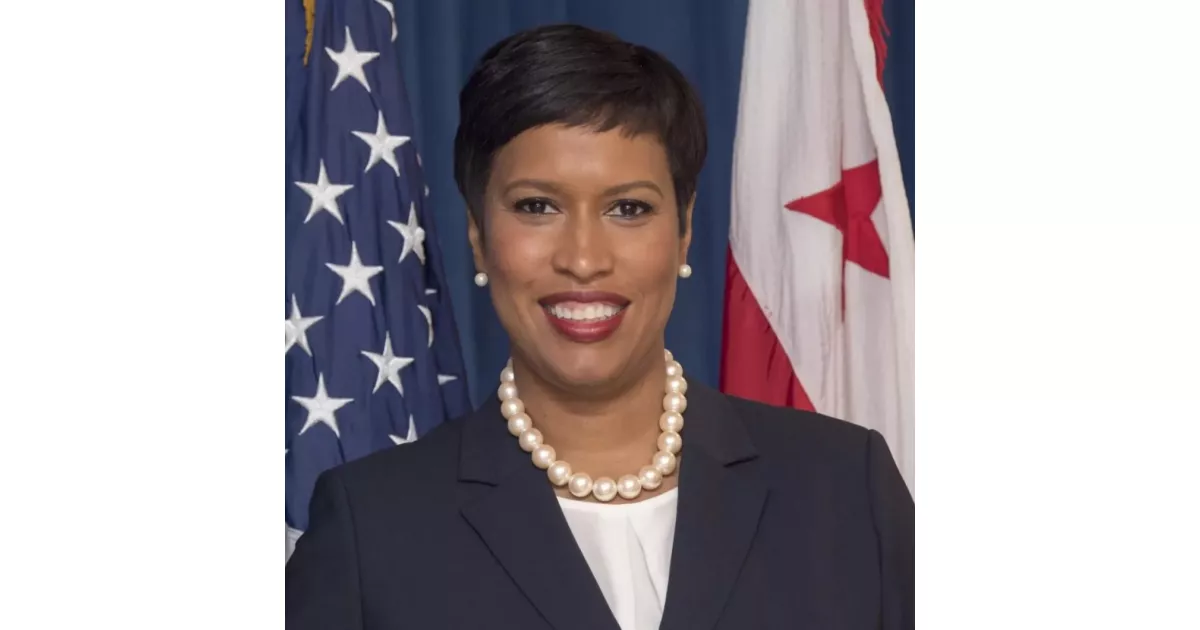Muriel Elizabeth Bowser is an American politician and the current mayor of the District of Columbia, serving since 2015. A Democrat, she previously served as the Councilmember for Ward 4 from 2007 to 2015. Bowser is the second female mayor of Washington, D.C., and the first African-American woman to win three consecutive mayoral elections. Her tenure has focused on managing the city's growth and addressing issues like affordable housing and education.
August 2, 1972: Muriel Bowser's Birth
On August 2, 1972, Muriel Elizabeth Bowser was born. She would later become the mayor of the District of Columbia.
1990: Bowser Graduated from Elizabeth Seton High School
In 1990, Muriel Bowser graduated from Elizabeth Seton High School, a private all-girls Catholic high school located in Bladensburg, Maryland.
1997: High Homicide Rate
In 2023, the district experienced more homicides than in 1997, even as many other major cities saw a decrease. Bowser attributed this to the city's approach to public safety.
2000: Bowser lives in Riggs Park duplex
Bowser lives in Riggs Park duplex since 2000 until 2015.
2003: High Homicide Rate in DC
July 2021, DC had recorded 100 homicides, the earliest point in the year it had reached this milestone since 2003.
2004: Bowser Ran Unopposed for Advisory Neighborhood Commission
In 2004, Muriel Bowser began her political career, running unopposed for the Advisory Neighborhood Commission (ANC).
2004: Bowser Elected to Advisory Neighborhood Commission
In 2004, Muriel Bowser was elected to the Advisory Neighborhood Commission.
2004: Advisory Neighborhood Commissioner Recalled
In 2004, Paul E. Montague, one of the people who ran against Bowser in the 2008 Democratic primary, had been Advisory Neighborhood Commissioner of 4B07 before being recalled.
2006: Bowser as Campaign Coordinator
In 2006, Adrian Fenty ran for mayor, and Muriel Bowser was his campaign coordinator for Ward 4. After Fenty's election, Bowser announced her candidacy for his vacant council seat.
2006: Bowser Ran Unopposed for Re-election
In 2006, Muriel Bowser ran unopposed again when she sought re-election to the Advisory Neighborhood Commission.
2007: Harry Thomas Jr. embezzled funds from D.C. Trust
Former councilmember Harry Thomas Jr. was found guilty on felony charges for embezzling $350,000 of the D.C. Trust's funds between 2007 and 2009.
2007: Bowser Joined the Council of the District of Columbia
In 2007, Muriel Bowser became a member of the Council of the District of Columbia, representing the 4th ward.
2007: Bowser Elected to the Council in a Special Election
In 2007, Muriel Bowser was elected to the council in a special election.
2008: Bowser Announced Reelection Campaign for the Council
In 2008, Bowser announced her reelection campaign for the council. She faced three challengers in the Democratic primary.
2008: Bowser Re-elected to the Council
In 2008, Muriel Bowser was re-elected to the council.
2009: Harry Thomas Jr. embezzled funds from D.C. Trust
Former councilmember Harry Thomas Jr. was found guilty on felony charges for embezzling $350,000 of the D.C. Trust's funds between 2007 and 2009.
2011: Bowser Appointed to WMATA Board
In 2011, Bowser was appointed to the Washington Metropolitan Area Transportation Authority board of governors.
2012: Bowser Ran for Reelection
In 2012, Bowser ran for reelection and stated she would accept donations from corporations, leading to criticism regarding the influence of developers and corporate donors.
2012: Bowser Re-elected to the Council
In 2012, Muriel Bowser was re-elected to the council.
March 23, 2013: Bowser Announced Mayoral Run
On March 23, 2013, Muriel Bowser announced her candidacy for Mayor of the District of Columbia in the 2014 election.
2013: Congressional investigators concluded that the agency lacked controls
In 2013, Congressional investigators concluded that the agency lacked controls to properly administer a $20 million-a-year, federally funded school-voucher program.
2013: Homeless Population Numbers
In 2018, the results of an annual survey required by federal law reflected a 7.6% drop in the homeless population from 2017. The estimated total homeless population of 6,904 was, however, still slightly higher than it had been in 2013.
2014: Bowser ran for Mayor of the District of Columbia
In 2014 Muriel Bowser ran for Mayor of the District of Columbia.
2014: Campaign Committee Accepted Excess Contributions
In 2014, Bowser's campaign committee accepted contributions beyond legal maximums during her mayoral campaign.
2014: Bowser Elected Mayor
In 2014, Muriel Bowser was elected mayor after defeating incumbent Vincent C. Gray in the Democratic primary.
2014: Campaign Contributions
The husband of the Veritas CEO was a major donor to the Bowser campaign in 2014.
January 2, 2015: Bowser Took Office as Mayor
On January 2, 2015, Muriel Bowser took office as the mayor of the District of Columbia after winning the general election in 2014.
January 2015: Bowser Expresses Strong Stance on Gun Control
In her inaugural speech in January 2015, Bowser characterized herself as "a mayor who hates guns", signaling her strong advocacy for gun control.
February 2015: Cancellation of Public Facility for Art Exhibitions
In February 2015, Bowser cancelled the creation of a public facility for art exhibitions, lectures, and educational activities by the Institute for Contemporary Expression, citing financial concerns.
March 2015: Bowser promises to get the DC Streetcar "up and running"
During her first State of the District Address in March 2015, Bowser promised to get the DC Streetcar "up and running".
September 2015: Deal Announced for Washington Wizards Practice Facility
In September 2015, Bowser announced a deal with Monumental Sports owner Ted Leonsis to build a practice facility for the Washington Wizards, with district taxpayers paying 90% of the estimated $55 million cost.
September 2015: Planned First Event
In September 2015, the Institute for Contemporary Expression had planned its first event at the historic Franklin School, before the cancellation of funding by Bowser.
October 2015: Proposals Still Considered
As of October 2015, proposals were still being considered for the unused Franklin School after Bowser cited financial concerns for the decision to cancel funding of the Institute for Contemporary Expression project.
October 2015: Bowser supports Exelon and Pepco merger
In October 2015, Bowser changed her position to support the $6.4-billion merger between Exelon and Pepco. The decision faced criticism regarding transparency and potential ethical concerns.
November 2015: FreshPAC Shut Down
In November 2015, FreshPAC, a political action committee intended to advance Muriel Bowser's agenda, was shut down following criticism from the Washington Post and others. It had accepted unlimited contributions due to a legislative loophole.
December 2015: Exelon paid chairman of FreshPAC as a lobbyist
In December 2015, it was revealed that Exelon had paid the chairman of FreshPAC, a political action committee affiliated with Bowser's allies, as a lobbyist.
2015: Increase in Homeless Families Housed in Shelters
During the winter of 2015, the district saw an increase of more than 250% over any previous year in homeless families housed in shelters and overflow motel rooms.
2015: Bowser announces Vision Zero traffic safety initiative
In 2015, Bowser announced a Vision Zero traffic safety initiative with the goal of eliminating all traffic fatalities by 2024. The initiative was launched with supporters and D.C. employees waving green signs to encourage motorists to slow down.
2015: Bowser buys home in Colonial Village
In 2015, Bowser bought a home in Colonial Village, moving from a Riggs Park duplex where she had lived since 2000.
2015: Bowser creates new cabinet post for development in poorest areas
In 2015, Bowser created a new cabinet post to focus on development in the city's poorest areas and named Courtney Snowden to the position.
2015: Bowser Left WMATA Board
In 2015, Bowser's tenure on the Washington Metropolitan Area Transportation Authority board of governors came to an end.
2015: Preferential Treatment in School Placements
In 2015, D.C. Public Schools chancellor Kaya Henderson gave preferential treatment to well-connected parents, including two senior Bowser appointees, for school enrollments, bypassing the competitive DCPS lottery system.
2015: Homicide Spike in the District
In 2015, there was a homicide spike in the District.
2015: Goal to Halve HIV/AIDS Cases
Upon taking office in 2015, Bowser set a goal to halve the number of HIV/AIDS cases in the district by 2020.
January 2016: D.C. Trust board learns of misuse of funds
In January 2016, the D.C. Trust's board learned that a former executive director and financial officer used funds to pay tens of thousands of dollars in credit-card charges, including some for personal use. Bowser had recently provided $700,000 in taxpayer funding to the agency.
January 2016: Traffic paralysis due to snowfall
In January 2016, traffic throughout the D.C. region was paralyzed by an inch of snow on untreated roads, leading to numerous accidents and abandoned cars. Bowser apologized for an inadequate response, admitting, "we should have been there earlier."
February 2016: Plan to Provide Housing for Homeless Families
In February 2016, Bowser unveiled a plan to provide housing for homeless families following the closure of District of Columbia General Hospital, announcing the location of one shelter in each of the district's eight wards without community consultation.
February 2016: Medical Director Resigns from Fire Department
In February 2016, Bowser's appointee as medical director of the fire department resigned after one year, citing a failed agency and risk to Washingtonian lives.
February 27, 2016: H Street/Benning line begins public service operations
The H Street/Benning line of the DC Streetcar began public service operations on February 27, 2016.
March 2016: Controversy Over Homeless Shelter Sites
In March 2016, it was revealed that many of the sites selected for homeless shelters were connected to Bowser's contributors, and the monthly cost per unit was high.
April 2016: The D.C. Trust declares bankruptcy
In April 2016, the D.C. Trust, a government-funded entity, declared bankruptcy, attributed in part to overspending. The agency had a history of mismanagement, including a former councilmember embezzling funds and a lack of controls over a federally funded school-voucher program. Bowser had recently provided $700,000 in funding to the agency.
May 2016: Bowser endorses Hillary Clinton for president
In mid-May 2016, Bowser endorsed Hillary Clinton's presidential candidacy ahead of the 2016 District of Columbia Democratic primary.
July 2016: Cost Overruns Announced for Practice Facility
In July 2016, before construction had started, it was announced that costs for the Washington Wizards practice facility would exceed estimates by $10 million, while the number of seats in the facility would likely decrease.
2016: Bowser praises Raul Castro
During the 2021 Cuban protests in July, the words "CUBA LIBRE" were painted in front of the Cuban embassy in support of the Cuban people. By July 20, the words were removed by the Bowser administration, who classified the words as "unauthorized". Bowser received criticism for her double standard of praising Raul Castro in 2016.
2016: Officer shootings and body cam footage in the Metropolitan Police Department
From 2016 to 2018 there were 25 involved officer shootings. As of April 2019 only three instances of body cam footage had been released.
2016: Bowser speaks at Democratic National Convention
In 2016, Bowser delivered a speech at the Democratic National Convention, advocating for D.C. statehood.
2016: District Homicides Fell
In 2016, District homicides fell by 17%, to 135.
2016: Management of UMC Awarded to Veritas
In 2016, the D.C. Council awarded the management of United Medical Center to Veritas, a politically connected firm, on the advice of the Director of Health Care Finance.
2016: Department of General Services Head Resigned
In 2016, the head of D.C.'s Department of General Services resigned and contracting officials were fired following the award of a large construction project, leading to allegations of contracts being channeled to a major Bowser campaign donor.
January 2017: Bowser reaffirms D.C.'s status as a sanctuary city
In January 2017, following Donald Trump's inauguration and an executive order threatening to withhold Federal funding from sanctuary cities, Bowser affirmed that the District would maintain its status as a sanctuary city. This followed earlier statements and protests regarding the city's stance on the issue.
March 2017: Warning About Safety Lapses at UMC
By March 2017, the director of D.C.'s Department of Health was warning the UMC board about serious safety lapses in the hospital's obstetrics unit, after Veritas had taken over management.
July 2017: Patient Death Notification Delay
Earlier, in July 2017, the hospital allowed a week to pass between the death of a nursing home patient and notification to his family.
October 2017: $3 million infusion into housing and retail projects in D.C. Wards 7 and 8
In October 2017, Bowser announced a $3 million infusion into housing and retail projects in D.C. Wards 7 and 8 to address the scarcity of grocery stores. The awards included $2.1 million to the Jair Lynch group for redevelopment of a shopping center, and $880,000 to South Capitol Affordable Housing.
November 2017: D.C. joins partnership to assist green card holders in applying for U.S. citizenship
In November 2017, Bowser announced that D.C. was joining seven other cities in a partnership with the National Immigration Forum. The partnership aimed to assist around 2,000 green card holders working for the D.C. Government, as well as their family members, in applying for U.S. citizenship, potentially saving applicants up to $2,000 in legal fees.
December 2017: Bowser orders sexual harassment training for district employees
In December 2017, Bowser mandated sexual harassment training for 30,000 district employees by February 2018, including advanced training for supervisors.
2017: District Homicides Fell Again
In 2017, District homicides dropped again to 116, about the same level prior to a 2015 spike.
2017: Animal Regulations Proposed and Withdrawn
In 2017, Muriel Bowser proposed several animal regulations, including a ban on backyard chickens, but the proposals were withdrawn following public backlash. Later the same year, restrictions on dogs in outdoor bar patios were eased after public objections.
2017: Report Found Questionable Firings and Illegal Information Sharing
In 2017, a report found questionable firings and illegal sharing of confidential information related to a major Bowser campaign donor. Bowser refused to comment on the report.
2017: Campaign Committee Fined
In 2017, the D.C. Office of Campaign Finance fined Bowser's campaign committee $13,000 for accepting excess contributions during her 2014 mayoral campaign. The campaign returned the excess contributions.
2017: Inspector General finds Snowden improperly used city employees
In 2017, the Inspector General found that Courtney Snowden had improperly used city employees to care for her child. Bowser stated that appropriate management action had been taken but did not elaborate.
2017: Opioid Epidemic Ravages D.C.
In 2017, the opioid epidemic ravaged D.C., with a higher rate of fatal overdoses among African Americans in D.C. than whites in West Virginia or New Hampshire.
2017: Traffic fatalities continue to rise
In 2017, traffic fatalities continued to rise, despite the Vision Zero traffic safety initiative launched in 2015.
2017: Decrease in Homeless Population
In 2018, the results of an annual survey required by federal law reflected a 7.6% drop in the homeless population from 2017, following a 17.3% drop the year before. The homeless population decreased in 2017.
January 2018: Investment in Anacostia River Islands
In January 2018, Bowser announced a $4.7 million investment in Kingman Island and Heritage Island in the Anacostia River, designating portions as a "state conservation area" for recreation and education, including outdoor classrooms, walkways, a floating lab platform and bathrooms.
February 2018: Deadline for sexual harassment training for district employees
In December 2017, Bowser mandated sexual harassment training for 30,000 district employees by February 2018, including advanced training for supervisors.
February 2018: Autonomous Vehicle Work Group Formed
In February 2018, Muriel Bowser announced the formation of a work group to explore the benefits of autonomous vehicle technology for the district.
March 2018: Support for March for Our Lives Rally
In March 2018, Bowser was "unusually supportive" of the March for Our Lives rally in Washington, D.C., and positioned herself as a national figure in the gun control movement.
March 2018: Report of taxpayer money spent on sexual harassment settlements
In March 2018, it was reported that taxpayers had spent at least $735,000 to settle sexual harassment suits, highlighting the Bowser administration's lack of full understanding of the issue and plans to improve tracking of complaints and settlements.
April 2018: Controversy Surrounding Joshua Lopez
In April 2018, Joshua Lopez, Bowser's nominee for the D.C. Housing Authority board, held a loudspeaker at a rally while a representative of the Nation of Islam spoke, calling Councilmember Elissa Silverman "a fake jew".
May 2018: Bowser adopts a baby daughter
In May 2018, Bowser announced that she had adopted a baby daughter.
December 2018: Announcement of Opioid Death Reduction Plan
In December 2018, the district announced an "ambitious" plan aiming to cut opioid deaths by half within about two years, using a combination of treatment, tracking and education.
2018: Protests over traffic safety following biking fatalities
Following a pair of biking fatalities in the summer of 2018, cyclists protested that Bowser had failed at promoting traffic safety, despite the Vision Zero initiative.
2018: Officer shootings and body cam footage in the Metropolitan Police Department
From 2016 to 2018 there were 25 involved officer shootings. As of April 2019 only three instances of body cam footage had been released.
2018: Bowser re-elected as mayor
In 2018, Bowser filed to run for re-election. She won the June 19 Democratic primary with 83% of the vote and went on to win the November 8 general election with just under 80% of the vote.
2018: Manipulation of School System by Chancellor Antwan Wilson
In 2018, Bowser's Schools chancellor Antwan Wilson manipulated the school system to transfer his daughter to a preferred school, leading to his resignation and prompting investigations by multiple federal and local agencies.
2018: Drop in Homeless Population
In 2018, an annual survey reflected a 7.6% drop in the homeless population from 2017, following a 17.3% drop the year before.
2018: Bowser Opposed Campaign Finance Legislation
In 2018, the D.C. Council passed campaign finance legislation that sought to remove the influence of large donors. Bowser was opposed to the act and said she would not provide financing for its implementation.
2018: Homicides Increased in the District
In 2018, there were 160 homicides in the District, an increase of 40% from the previous year and the most since 2015.
2018: Non-Renewal of Contract for Head of Office of Open Government
In early 2018, the D.C. Board of Ethics and Government Accountability voted not to renew the contract of Traci Hughes, head of the Office of Open Government, allegedly due to her enforcement of District regulations on government transparency.
March 2019: Bowser Released Second Term Budget
In March 2019, Bowser released the first budget of her second term, increasing spending by 8.2%. The D.C. auditor criticized the budget as unsustainable, while Bowser hailed her plan to make the DC Circulator free.
April 2019: Limited release of body cam footage in officer shootings
As of April 2019, despite Bowser's support for body cameras for the Metropolitan Police Department, only three instances of body cam footage had been released out of 25 involved officer shootings from 2016 to 2018.
May 2019: Auditor Finds Funding Issues in Housing Production Trust Fund
In May 2019, the D.C. auditor discovered that the Housing Production Trust Fund had awarded funding to poorly rated proposals, some from developers who had contributed to the mayor's campaign.
2019: Bowser Administration Took Control of Art Collection
In 2019, Bowser's administration took control of the art collection owned by the D.C. Commission on the Arts and Humanities, leading to a power struggle and staff lockouts.
2019: MPD handcuffs 9 and 10 year old children
In 2019, a 9 year old and a 10 year old were handcuffed by the Metropolitan Police Department in separate incidents, sparking public outrage. Bowser responded by saying that "every case is different" and questioned the appropriateness of circulating photos of juveniles.
2019: Bike advocate killed by driver
In 2019, a prominent bike advocate was struck and killed by a driver along a known dangerous road.
2019: $3.75 Million Missed by Local Organizations
In 2019, local organizations providing assistance to at-risk populations in D.C. missed out on $3.75 million in funding due to a failure by the D.C. Government to submit a timely application.
2019: Murders Continued to Rise
In 2019, murders continued to rise, and by September 19, the homicide rate in the district reached 125, a 17% increase from the previous year.
2019: High HIV/AIDS Rates Persist
In 2019, the District continued to have one of the highest rates of HIV/AIDS cases in the country, although the number of diagnoses had decreased slightly in the previous two years.
January 2020: Bowser endorses Michael Bloomberg for president
In late January 2020, Bowser endorsed Michael Bloomberg's campaign in the 2020 Democratic Party presidential primaries.
May 2020: D.C. speed limits reduced to 20 mph
In May 2020, Bowser announced that the default speed limits in D.C. would be reduced to 20 mph to improve safety.
June 2020: Data Removed from Website to Avoid Displaying Failure to Meet Metric
In June 2020, Bowser's administration removed data from the government's website to avoid displaying how it had failed to meet a key metric in reopening the District.
November 2020: Bowser Traveled to Delaware for Biden Victory Celebration
In November 2020, Bowser traveled to Delaware with senior staff for a celebration of Joe Biden's victory despite the elevated risk of Coronavirus in the state and a travel advisory discouraging visits, leading to criticism.
2020: Goal Year for HIV/AIDS Reduction
By 2020, the District continued to have one of the highest rates in the country. In 2019, the District had one of the highest rates in the country.
2020: Bowser speaks at Democratic National Convention from Black Lives Matter Plaza
In 2020, Bowser delivered a speech remotely from Black Lives Matter Plaza at the Democratic National Convention.
2020: Pro-Trump rioters protest the results of the 2020 presidential election
On January 6, 2021, pro-Trump rioters and insurrectionists stormed the US Capitol, in protest of the results of the 2020 presidential election. Bowser imposed a curfew in response, to 6:00 pm that night and end at 6:00 am the following day, though it was ignored by numerous pro-Trump rioters and insurrectionists.
January 6, 2021: Bowser imposes curfew during Capitol riot
On January 6, 2021, following the storming of the US Capitol by pro-Trump rioters protesting the 2020 presidential election results, Bowser imposed a curfew in D.C. starting at 6:00 pm that night and ending at 6:00 am the following day. The curfew was widely ignored.
February 24, 2021: Bowser's sister dies of COVID-19
Bowser's eldest sister, Mercia, died of COVID-19 on February 24, 2021.
April 2021: Confusion over Masking Instructions
In April 2021, Muriel Bowser's instructions on masking created confusion among business owners and the public, resulting in a mayoral order being removed.
July 2021: DC Recorded 100 Homicides
In July 2021, DC had recorded 100 homicides, the earliest point in the year it had reached this milestone since 2003.
July 2021: Bowser Found Unmasked at Indoor Wedding
In July 2021, on the day her reinstated indoor mask mandate took effect, Bowser was found to have officiated an indoor wedding while unmasked, generating controversy.
October 2021: Resignation of D.C. Housing Authority Chair Neil Albert
In October 2021, Neil Albert, the chair of the D.C. Housing Authority, resigned after being found to have channeled contracts to a romantic partner. Bowser had previously supported Albert and commented on the FBI raid of his home, stating she holds employees to high standards. His replacement, Dionne Bussey-Reeder, had unpaid income taxes, violating DCHA bylaws.
2021: Traffic deaths in D.C. reach 2020 levels
By mid-November 2021, the number of traffic deaths in D.C. had already reached 2020's level despite the speed limits being reduced to 20 mph in May 2020.
2021: "CUBA LIBRE" painted in front of Cuban embassy
During the 2021 Cuban protests in July, the words "CUBA LIBRE" were painted in front of the Cuban embassy in support of the Cuban people. By July 20, the words were removed by the Bowser administration, who classified the words as "unauthorized". Bowser received criticism for her double standard.
2021: Tweet about Carjackings Sparks Controversy
In 2021, after a Pakistani Uber Eats driver was murdered during a carjacking, Muriel Bowser tweeted about carjackings being a crime of opportunity. This tweet led to backlash and accusations of racial bias due to the impression that the victim was responsible for his own death, and the tweet was later deleted without an apology or immediate condolences to the family.
2021: Forensic Crime Lab Loses Accreditation
In 2021, the district's forensic crime lab lost its accreditation following a probe that revealed concealed conflicting findings and examiners were pressured to change results. This led to a criminal investigation and the resignation of the lab's head, Jenifer Smith. Bowser honored Smith shortly after.
February 2022: Reappointment of Karima Holmes to Lead Office of Unified Communications
In February 2022, Bowser reappointed Karima Holmes to lead the Office of Unified Communications, a position she previously held for six years during which the city's 911 system fell short of national standards.
September 8, 2022: Bowser declares public emergency in D.C. due to migrant influx
On September 8, 2022, Bowser declared a public emergency in D.C. and established an Office of Migrant Services. This action was in response to the influx of migrants being sent to D.C. from Texas and Arizona. Bowser characterized the situation as a "migrant crisis".
2022: Bowser Re-elected Mayor
In 2022, Muriel Bowser was re-elected as mayor.
2023: Increase in Homicides
In 2023, the district experienced more homicides than in any other year since 1997, even as many other major cities saw a decrease. Bowser attributed this to the city's approach to public safety.
February 2024: Opinion Piece in The Washington Post
In February 2024, Muriel Bowser penned an opinion piece in The Washington Post titled, "Why Washington's sports teams should stay in Washington."
August 2, 2024: Bowser's father dies at 88
Bowser's father, Joe Bowser, died on August 2, 2024, at the age of 88.
2024: Target year for Vision Zero traffic safety initiative
In 2015, Bowser announced a Vision Zero traffic safety initiative with the goal of eliminating all traffic fatalities by 2024.
2026: Bowser Declined to Run for Re-election
In 2026, Muriel Bowser declined to run for re-election as mayor.
Mentioned in this timeline

Hillary Diane Rodham Clinton is a prominent American politician lawyer...
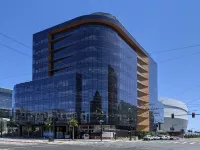
Uber Technologies Inc is a multinational transportation company headquartered in...
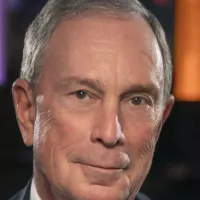
Michael Bloomberg is an American entrepreneur politician and philanthropist He...

Joe Biden is an American politician who served as the...

Washington D C is the capital city and federal district...
Arizona is a landlocked state in the Southwestern U S...
Trending

5 minutes ago Priyanka Chopra stuns in Dior and Gaurav Gupta at 'The Bluff' premiere.
5 minutes ago Puerto Vallarta: Vehicle Fires and Roadblocks Disrupt Sunday Morning
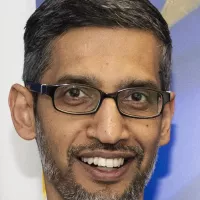
6 minutes ago Sundar Pichai envisions AI's transformative potential, focusing on India and global connectivity.

6 minutes ago Rhys Hoskins Reportedly Set to Join Cleveland Guardians After Phillies Departure.
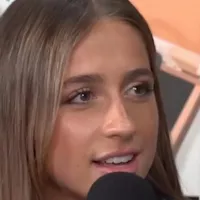
6 minutes ago Tate McRae stuns in Victoria's Secret dress, linked to Jack Hughes.
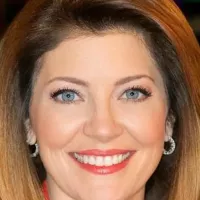
6 minutes ago Norah O'Donnell highlights unsung heroines in "We the Women" and celebrates Women's History.
Popular

Jesse Jackson is an American civil rights activist politician and...

Barack Obama the th U S President - was the...

Bernie Sanders is a prominent American politician currently serving as...

Ken Paxton is an American politician and lawyer serving as...

Michael Joseph Jackson the King of Pop was a highly...
WWE Raw a professional wrestling television program by WWE airs...
